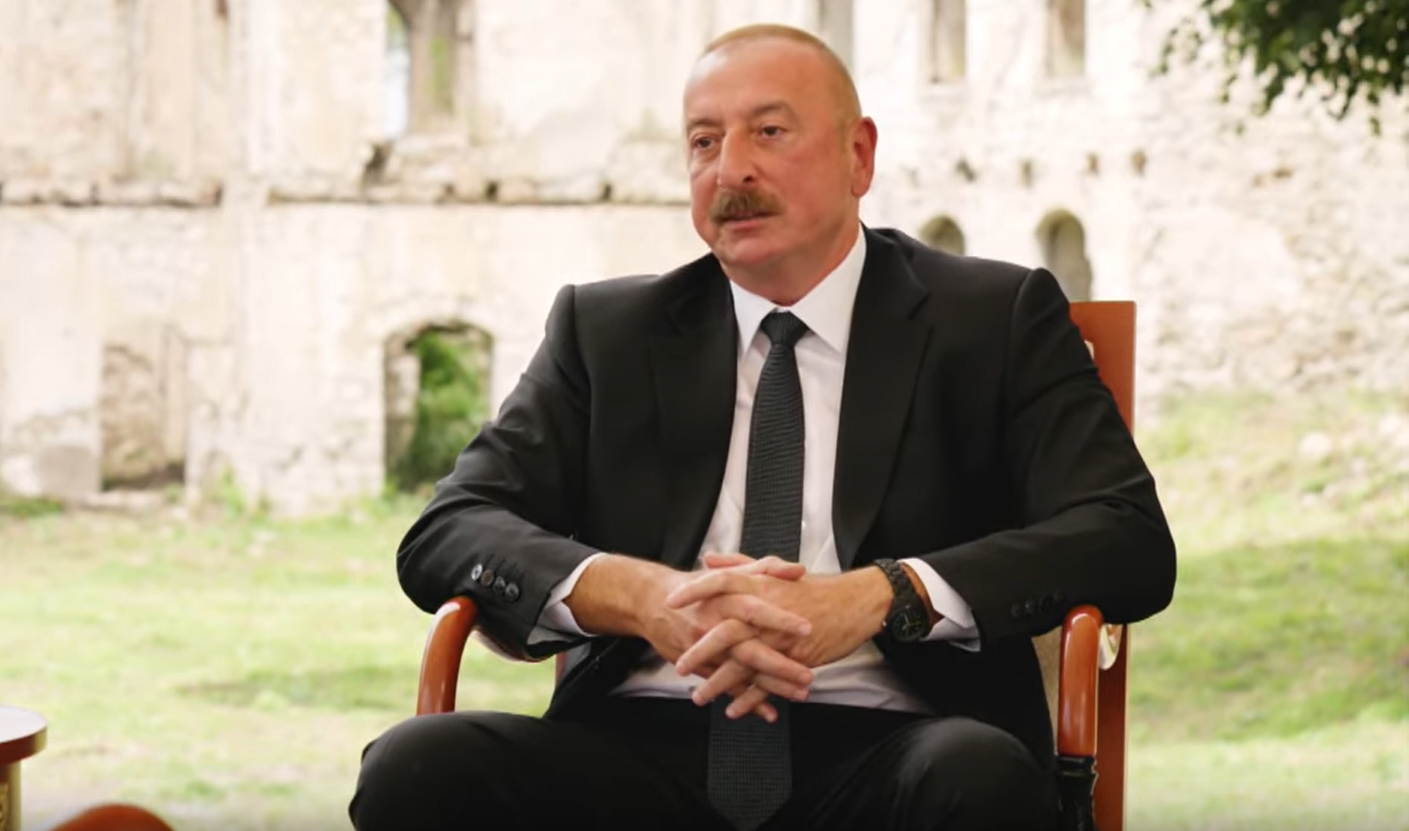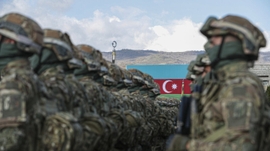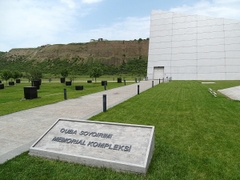President Ilham Aliyev spoke in a newly released interview with Euronews about the role of the mediators in normalizing ties between Azerbaijan and Armenia, including the US, the European Union (EU) and Russia.
Aliyev said although the EU was not part of negotiations during the Armenian occupation of the Azerbaijani lands from 1992-2020, it has come up with an initiative to broker peace between Baku and Yerevan after 2020, simultaneously with the OSCE Minsk Group leaving the table as a mediator.
“It was an initiative of President of the European Council Charles Michel, who invited us and we supported that. Because we think that taking into account the level of cooperation between Azerbaijan and EU, and Armenia and EU, it's natural to be active,” Aliyev told Euronews International Correspondent Anelise Borges in the city of Shusha, the Karabakh region of Azerbaijan, last month.
He added that the seat of an international broker should be taken by a new player after the Minks Group’s departure and the EU can be the best in this role because Baku’s relations with the EU are based on mutual respect, mutual trust and mutual interest.
According to the Azerbaijani president, the initiative put in place by the EU is currently transforming into a very active format of dialogue held in various locations, including in Brussels and Moldova’s capital Chișinău. Such discussions, Aliyev said, are important to prevent stagnation because a dangerous scenario can surface as a result of a breakdown in the negotiation process.
European Council President Charles Michel has so far brokered six meetings between President Aliyev and Armenia’s Prime Minister Nikol Pashinyan, including the last talks in Brussels on July 15.
The agenda of the negotiations traditionally featured the issues pertaining to the delimitation of borders, the opening of transport communications, as well as normalization and peace efforts.
Meanwhile, Aliyev said Russia is also part of the normalization process with Armenia despite the active involvement of the Western mediators, although the situation has changed since the war in Ukraine.
“Russia was a mediator of a ceasefire agreement or declaration of 10 November 2020. It was not the United States or the EU. Our first meetings with my Armenian colleague were organized by Russia in Russia,” he noted, adding that Baku would support a mediator who can produce initiatives that lead to a peace agreement.
Aliyev said the next round of negotiations with Armenia will take place later this month in Russia upon the latter’s invitation.
Russia was first to offer its assistance with normalizing ties between Baku and Yerevan after the bloody 44-day war in 2020. Aliyev and Pashinyan were hosted by President Vladimir Putin in Moscow on January 11, 2021, to discuss the new realities that emerged following the hostilities. Since then, the countries agreed to establish a trilateral working group to unblock the regional transport communications based on Article 9 of the tripartite statement signed in November 2020.
In May of this year, a new round of talks took place in Moscow, mainly addressing joint efforts aimed at establishing a mutually accepted mechanism for the movements through the interstate border of Azerbaijan and Armenia. Prior to the Moscow meeting, in April, Azerbaijan established a checkpoint in the Lachin district to take border crossings under full control amidst illegal arms shipments from Armenia to the Karabakh region of Azerbaijan.
Following the dissolution of the Soviet Union in 1991, Armenia launched a full-scale military campaign against Azerbaijan, resulting in the longest and deadliest war in the South Caucasus region. The war ended in a ceasefire in 1994, with Armenia forcibly occupying 20 percent of Azerbaijan’s internationally recognized territories. This occupation led to the deaths of over 30,000 Azerbaijanis and the expulsion of one million others in a brutal ethnic cleansing campaign conducted by Armenia.
On September 27, 2020, the conflict between Azerbaijan and Armenia escalated when Armenian forces in the occupied Azerbaijani lands shelled military positions and civilian settlements of Azerbaijan. In a counter-attack that lasted 44 days, Azerbaijani forces liberated over 300 settlements, including the cities of Jabrayil, Fuzuli, Zangilan, Gubadli, and Shusha, effectively ending the nearly 30-year-long illegal Armenian occupation. The war concluded with a tripartite statement signed by Armenia, Azerbaijan, and Russia on November 10, 2020. Under this statement, Armenia also returned the occupied districts of Aghdam, Kalbajar and Lachin to Azerbaijan.







 Azerbaijan has been recognized as one of the safest countries in the world, ranking 90th among 163 countries on the Global Terrorism Index 2025 (GTI).
Azerbaijan has been recognized as one of the safest countries in the world, ranking 90th among 163 countries on the Global Terrorism Index 2025 (GTI).
 The Azerbaijani Defense Ministry has reported ongoing shelling of its army positions by Armenian forces since last week.
The Azerbaijani Defense Ministry has reported ongoing shelling of its army positions by Armenian forces since last week.
 Iranian Foreign Minister Abbas Araghchi has urged the International Atomic Energy Agency (IAEA) to take a "transparent position" regarding potentia...
Iranian Foreign Minister Abbas Araghchi has urged the International Atomic Energy Agency (IAEA) to take a "transparent position" regarding potentia...



